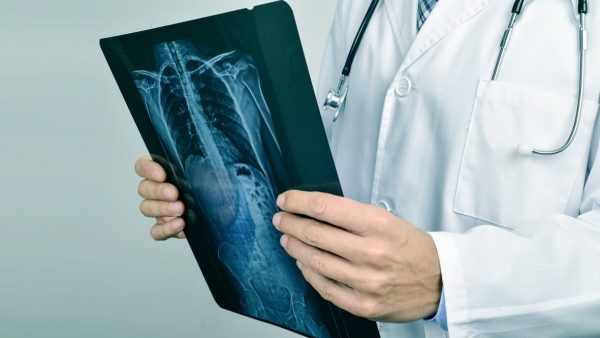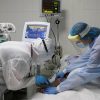 Now doctors of three specialties: “obstetrics and gynecology”, “therapy”, “surgery” can undergo professional retraining and become oncologists. Professional retraining courses take 4 months. On average, this is 506 academic hours. Over time, doctors of 18 specialties will be able to undergo retraining and receive a certificate of “oncologist”. Pravmir.ru talked to oncologists about whether this will solve the problem of staff shortage and how it will affect the quality of medical care.
Now doctors of three specialties: “obstetrics and gynecology”, “therapy”, “surgery” can undergo professional retraining and become oncologists. Professional retraining courses take 4 months. On average, this is 506 academic hours. Over time, doctors of 18 specialties will be able to undergo retraining and receive a certificate of “oncologist”. Pravmir.ru talked to oncologists about whether this will solve the problem of staff shortage and how it will affect the quality of medical care.
Some institutions offer a program of 576 hours. The form of study can be full-time and part-time with the following internship. Such an emergency retraining, according to the Russian Ministry of Health, should solve the personnel shortage in the profession.
Outpatient cancer care centers (OCCC) open in the regions. Today, there are already 230 of them in the country. According to the federal program “Fight Against Cancer”, about 420 such centers based on oncological dispensaries and multidisciplinary hospitals should open throughout Russia by 2024. One such center will be built per 50 thousand inhabitants.
The creation of OCCC network started in 2019. 120 billion rubles have been allocated for this. The centers should deal with diagnostics, dispensary observation and drug therapy.
About 1 trillion rubles are allocated for the development and improvement of cancer care in Russia for 2019-2024.
The only problem is that there are no doctors. The shortage of personnel in some regions reaches 60 percent. The already opened centers were underutilized and could not fulfill their own financial plan on time.
The Ministry of Health is trying to solve the personnel shortage by retraining specialists. The ministry intends to amend the bill No. 707n of October 8, 2015, which approves the qualification requirements for medical and pharmaceutical workers with higher education. These changes will expand the list of specialties that can undergo professional retraining in the “oncology” area of expertise.
There will be 18 such specialties, including “pediatric surgery”, “pediatric endocrinology”, “coloproctology”, “neurosurgery”, “otorhinolaryngology”, “ophthalmology”, “urology”, “maxillofacial surgery”, and “endocrinology”.
“This Is Simply Ridiculous!”
Alexey Maschan, Deputy Director General of the National Medical Research Center of Pediatric Hematology, Oncology and Immunology named after V.I. Dmitry Rogachev, said:
“We are laughing at this.
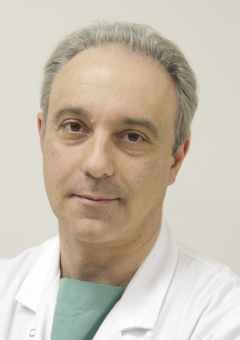
Alexey Maschan
During World War II, surgeons were trained for three years. My grandmother went to the front from the third year of the institute. She worked as a surgeon. In wartime, such measures are necessary: they saved many lives. But in 4 months it is not that it is impossible to retrain as an oncologist, one cannot learn how to clean the yard in the right way. This is simply ridiculous!
Oncology is a very complex and interdisciplinary science. And a doctor who works as an oncologist is primarily an integrator of interdisciplinary interactions. Therefore, this concept is criticized, to put it mildly.
You cannot retrain in any specialization in 4 months. This reminds me a lot of one story. My mother taught at an auto-mechanical institute and once met a student who left his third year without passing the theoretical foundations of electrical engineering. She asked him how he was doing one day and he replied: “I’m okay. I work as a dental technician, a friend taught me.”
“People don’t become professionals quickly”
Evgeny Cheryomushkin, oncologist, senior researcher at the Institute of Clinical Oncology said:
“It is very good that they began to build outpatient oncological care centers. It’s something at least.
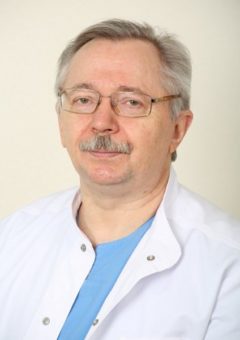
Evgeny Cheryomushkin
But the oncological service is not a building, nor modern equipment. The key to its high-quality work is a professional doctor.
Good scientific schools are needed for the appearance of professional doctors. It is essential that people who have devoted their entire lives to oncology have the opportunity to engage in science and share their experience with others.
The creation of scientific schools and the training of professionals take more than one year. It takes decades. And we need to develop this foundation very carefully and scrupulously.
Certainly, it is possible to build 500 centers, put doctors of other specialties in them, who have undergone retraining and suddenly became oncologists and hope that this will help increase the detection of cancer in the initial stages. It may help, but it looks like an emergency measure.
A systematic approach is needed. People don’t become professionals quickly.”
“Per one patient there are 10 people who do not know about their cancer”
Alexander Seryakov, Doctor of Medical Sciences, Professor, Head of the SM-Clinic Oncology Service, said:
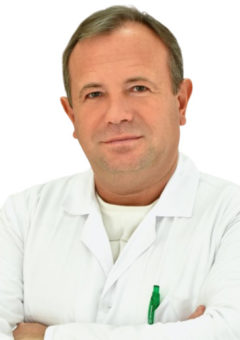
Alexander Seryakov
“Today, the primary health care system lacks about 2 thousand oncologists, according to the chief freelance oncologist of the Ministry of Health of the Russian Federation, professor, academician of the Russian Academy of Sciences, Andrei Kaprin. This is, of course, not good.
Primary care physicians are very important. It is because of their shortage that about half of the patients come to us with the third or fourth stage of cancer. That is, when we can no longer cure the patient, but can only prolong their life.
Therapists, urologists, gynecologists and doctors of various specialties should suspect oncology and send the patient to the primary oncology office at the polyclinic, where the primary care physician of the oncological service carries out diagnostics. He prescribes blood tests, additional examination methods and, when confirming a malignant formation, sends the patient to an oncological institution.
But we really lack these doctors. We lose a lot in the initial diagnosis. Per one cancer patient (this is about 600 thousand people a year), there are 10 more patients with precancerous diseases who do not know about their diagnosis. They need to be identified. In this situation, of course, we need to train more oncologists, so that the oncological service would be in full ammunition.
This retraining will reduce this deficit in primary care. As a rule, there are enough doctors at the level of federal centers and regional oncological dispensaries. Everyone wants to work with good equipment in a good medical institution. There is no particular staff shortage there. It is precisely the primary care of oncologists that suffers.
Specialists of other specialties will undergo a four-month training cycle with receiving a certificate of oncology. In addition, starting next year, all doctors after receiving the certificate must be accredited. This is how the graduation of oncological doctors is controlled.
Accreditation is introduced by the Ministry of Health. It must be completed by university graduates and those who are undergoing professional retraining. This is a great exam, there are theoretical and practical parts.
How will retrained doctors get the experience that is so essential in oncology? It is a matter of personal efforts of each of them. Frankly, this experience was better gained in our socialist times, because there were doctors-mentors. They learned from experience at the patient’s bedside.
There is no explicit mentoring right now. Young doctors are adopting the experience of their older colleagues as best they can. It all depends on their desire, skill, and readiness to learn.
The initiative of the Ministry of Health can solve the personnel problem, but one should speak with caution about the quality of medical care. Taking into account the fact that accreditation implies an exam, everything still depends on the examination boards and professional oncologists. It is important that there is an absolutely adequate approach to the applicant and that fake diplomas are not issued. But only those corresponding to this accreditation and qualifications [will get their diplomas].”
Translated by pravmir.com












